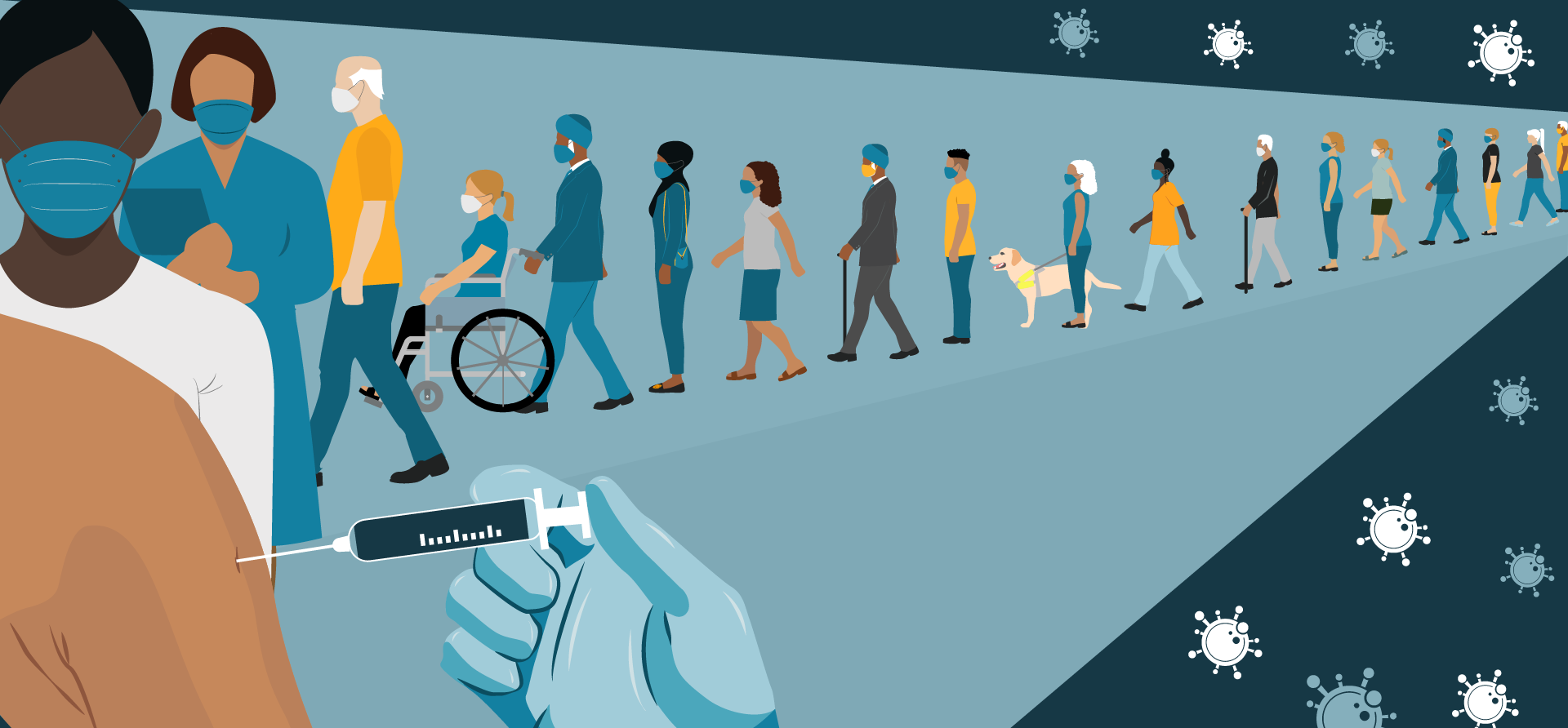We’re only a few weeks away from it being a full year since the beginning of quarantine and the beginning of online school. Since then, we’ve been through countless schedule changes, all trying to keep everyone safe while getting us as much in-person instruction time as possible. Recently, Massachusetts schools want to start sending students into in-person classes five days a week, starting with elementary schools, then moving on to middle and high school. This is great news for a lot of students who find in-person learning easier than remote, but for people who are more cautious or can’t attend in-person school for health reasons, this change might not be such good news.
Thankfully, everyone at MHS may be able to return to in-person classes safely next school year. The White House has recently announced that high school students may be able to get a COVID vaccine by the fall. Previously, Dr. Anthony Fauci had predicted that high school students would get the vaccine in the spring or summer, and that children as young as first-graders could get the vaccine by September. Unfortunately, this timeline has been pushed back. Recently, Fauci stated, “It is highly likely that sometime in the fall, we will have data that will give us the capability of saying the safety and comparable efficacy in children 12 to 17, 18 years old,” and that for younger children the vaccine, “Almost certainly will not be firmed down until the first quarter of 2022.” This means that if everything keeps going as planned, high school students might be able to get vaccinated in time for the next school year.
Pfizer and Moderna are the two companies currently working on conducting pediatric vaccine trials. The Pfizer trials include participants 12-15 years old, and they expect results in the fall. Pfizer also plans to start trials with five to 12 year olds in April. Moderna is currently enrolling participants ages 12-18, and they are “On track to provide updated data around mid-year 2021.” Additionally, Moderna intends to begin trials in age de-escalation for children ages 11 to six months in March.
It is important for kids to be vaccinated for several reasons. First, children are not immune to the virus and can get very sick from it. In fact, about 11% of the U.S. COVID cases have been in people under the age of 18. Children need to be vaccinated for their own safety. Second, children should also be vaccinated for the safety of the people around them. While it has been shown that children don’t transmit the virus at the same rate as adults, they can still spread it. By vaccinating kids all the people they come in contact with will be protected, including parents, grandparents, teachers, coaches, and any other adults children may be around.
Lastly, I know that when the first COVID vaccines came out, I was confused as to why they’re not considered safe for children. I found that since children’s immune systems are still developing, their reaction to the COVID vaccine is unpredictable. They could react better or worse than adults, or have side effects that adults didn’t. This is why studies are required specifically for children and even further narrowed down by age groups; it’s all to make sure the vaccines are safe. Trials in kids are using the age de-escalation strategy, where trials happen starting with teenagers then progressively include younger and younger age groups. It makes sense to start with adolescents because they are more likely to be infected by the virus than younger kids, and their immune response will likely be more similar to those of adults. For younger kids, the vaccine trial process will have to be different than with adults: the kids will receive smaller doses of the vaccine to start to make sure it is safe. This requirement for additional, more cautious testing with younger children is why their vaccine is predicted to take longer to develop.
Hopefully at this rate, students at Marblehead High School will be able to receive the vaccine this upcoming fall. Getting the vaccine out to children will make it easier and safer for students to return to school, and it will help stop the spread of the Coronavirus, bringing us closer to being able to start getting things back to normal.

